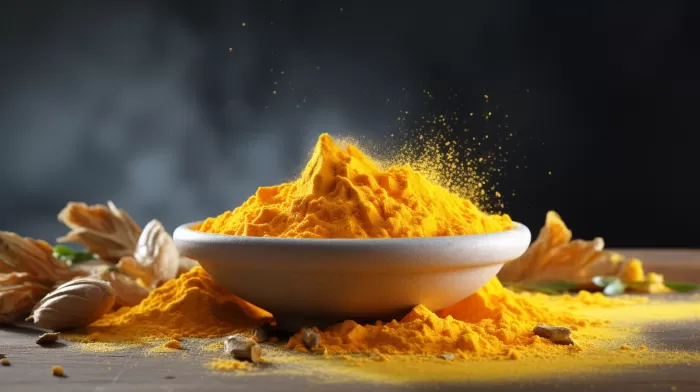Chances are, you’ve heard about the numerous health benefits of turmeric, a spice that has been hailed as a potent natural remedy for centuries. It’s now making a significant impact on modern medicine, particularly for its potential role in combating and preventing neurodegenerative diseases like Parkinson’s disease. With this fascinating research, you just might find yourself reaching for that jar of turmeric more frequently.
The Power of Curcumin
At the heart of turmeric’s numerous health benefits is the active compound called curcumin. This bioactive substance has been extensively researched for its anti-inflammatory, antioxidant, and anti-cancer properties. This powerful component of turmeric holds remarkable potential for fighting inflammation and oxidative damage in the body, both of which are known to contribute to a wide range of chronic diseases.
Turmeric and Parkinson’s Disease
Parkinson’s disease is a neurodegenerative disorder that affects the nerve cells in the brain that control movement. Symptoms include trembling, stiffness, slow movement, and impaired balance. Although the exact cause of Parkinson’s is still not fully understood, it is believed that the accumulation of a protein called alpha-synuclein plays a key role in the development of the disease.
Researchers have discovered that curcumin may be effective in preventing the early stages of Parkinson’s by slowing down the aggregation of alpha-synuclein proteins. This clumping of proteins can lead to the formation of Lewy bodies, which are microscopic deposits found in the brains of people with Parkinson’s and other neurodegenerative disorders. By inhibiting the formation of these toxic protein clumps, curcumin could potentially halt the progression of Parkinson’s and other similar conditions.
The Blood-Brain Barrier Challenge
One major challenge in using curcumin as a therapeutic option for neurodegenerative diseases lies in its poor ability to cross the blood-brain barrier. This barrier is a protective structure that controls the passage of substances between the bloodstream and the brain, and it is crucial for maintaining homeostasis within the central nervous system. Since curcumin has limited brain penetration, its direct impact on the neural tissues where protein misfolding takes place may be restricted.
However, this roadblock has not deterred researchers from exploring potential methods to enhance the bioavailability and brain penetration of curcumin.
Advancements in Curcumin Delivery
The limitations of curcumin’s ability to cross the blood-brain barrier have led scientists to develop novel approaches for enhancing its delivery to the brain. Some of these innovative techniques include:
- Nanoformulations – Scientists have been experimenting with creating nanoparticles that encapsulate curcumin, allowing it to effectively cross the blood-brain barrier while maintaining its therapeutic effects. Several studies have shown promising results in improving curcumin’s bioavailability and efficacy in targeting brain tissues.
-
Curcumin derivatives – Researchers are also focusing on creating synthetic derivatives of curcumin with an enhanced ability to target the brain and elicit therapeutic effects. For instance, a study published in the Journal of Medicinal Chemistry reported the synthesis of a new class of curcumin derivatives that showed increased potency and selectivity in inhibiting the aggregation of alpha-synuclein.
-
Adjuvant substances – Another approach to improving curcumin’s brain penetration is by using adjuvant substances like piperine, a compound found in black pepper. Piperine has been shown to significantly increase the bioavailability of curcumin and extend its therapeutic reach into the brain. In one study, the combination of curcumin and piperine significantly reduced the neurotoxicity caused by the pesticide rotenone, a known risk factor for Parkinson’s disease.
Incorporating Turmeric into Your Daily Diet
Although the use of turmeric as a potential treatment for Parkinson’s is still under investigation, incorporating this powerful spice and its beneficial component curcumin into your everyday diet can promote overall health and wellness. Here are some simple ways to add more turmeric to your meals:
- Sprinkle turmeric powder into your favorite recipes, such as soups, stews, and smoothies.
- Make a warm cup of golden milk, a traditional Indian beverage made from milk, turmeric, and spices.
- Brew a cup of turmeric tea, or blend it with other flavorful herbs for a health-boosting infusion.
- Use turmeric as a natural food coloring to bring a vibrant yellow hue to your dishes.
Turmeric’s potential in protecting the brain from neurodegenerative diseases like Parkinson’s is an exciting area of research. Although more studies are needed to determine the optimal delivery method and therapeutic doses, incorporating turmeric into your diet is a delicious and healthy way to support your brain health and overall well-being.



